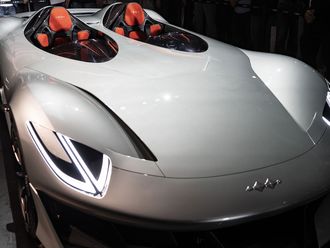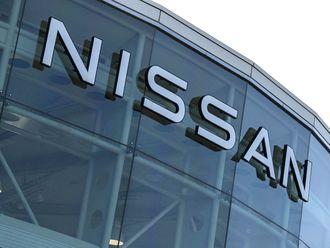Mumbai: Ashok Kokane sits amid his strawberries at Mumbai's Crawford Market, a handwritten ledger across his knees and a fan of dirty Rs10 (Dh0.71) notes at his hand. The lazy, dust-encrusted ceiling fans above are far past cleaning.
There is a sense of timelessness here, in the lurking cats, the shiny shrine to the Hindu deity Durga and the cry "Porter? Porter?" sent up by skinny boys with frayed baskets on their heads. It is a tableau many fear will disappear after the government's decision last week to give foreign big box retailers like Wal-Mart greater access to India's huge market.
"When big man comes, small man goes," Kokane said.
The arrival of modern retailing would hasten a cultural transformation in the way Indians shop and work. The debate now raging — which has shut down Parliament and prompted a strike by shopkeepers yesterday — hinges on competing visions of what foreign retailers will mean to agriculture and retail, India's two largest sources of jobs.
Argument
The government argues organised retail will make food cheaper, liberate millions from medieval working conditions and put more money into the hands of desperate farmers. Others say it will deepen the inequities of Indian society and wipe out a merchant class whose values and skills have been passed from father to son for generations.
The existing retail landscape is an intricate tangle of shops and bazaars, forged by ideas that date way back in time. But even without Wal-Mart, small, family run shops are already under threat. With the growing dreams of India's youth for better paid, more prestigious jobs, retailers are finding it hard to keep the next generation in the family business.
Today, organised retail accounts for just 5.5 per cent of India's $470 billion (Dh1.7 trillion) retail market, according to Technopak Advisors, a New Delhi-based consulting company. Food accounts for about 70 per cent of the retail market, which Technopak expects will hit $675 billion by 2016.
Existing domestic supermarkets, like Reliance's Fresh, Godrej's Nature's Basket and Tata's Westside, have struggled to succeed.
Stocking irregularities mean those last cans of Italian plum tomatoes might not be replaced for a month. Shoppers sometimes put back items because the clerk can't figure out how to get his computer to register the bar code.
"The traditional retailer in India can offer better value than some of the large, organised players," said Arvind Singhal, Technopak's founder.
The best local shops are marvels of service and quality, bundled with a nice human touch. If you're short on money, you can pay next time. If you want a fistful of flat-leafed parsley or a special pan, they can get it in a day or two. Every organised urban household has a raft of phone numbers for home delivery of cat food, detergent, chickens and pretty much anything else.
Yet there are severe drawbacks to the system.
India's market and roadside stalls employ, at backbreaking rates, armies of slim men pedalling rusted bicycles stacked improbably high with eggs for delivery. They run up dark staircases offering fresh rolls wrapped in newspaper and carry cases of bottled water on their heads three at a time.
"No one benefits from this kind of employment," Singhal said. "People are hardly getting money for those jobs."
Far better — and cheaper for the retailer, he argues — to hire one well-trained, decently paid person than five low-paid workers and spur a virtuous cycle of rising productivity and increased consumption.
Coexistence possible
Many argue that retailing in India is not yet a zero-sum game: demand is growing fast enough that big and small players can thrive side by side. The Ministry of Commerce noted that in China, more than 600 hypermarkets opened between 1996 and 2001 but the number of small stores grew too: from 1.9 million to over 2.5 million.
The ministry predicts modernisation will create some ten million new jobs in areas like food processing and transport, as well as in the new retail outlets. They say the more open policy will drive down skyrocketing food prices and help millions of farmers get more money for their crops by eliminating waste and middlemen.
- 5.5%: share of organised retail in India's retail market
- $470b: the estimated size of India's retail sector
- $675b: projected size of the retail sector by 2016












